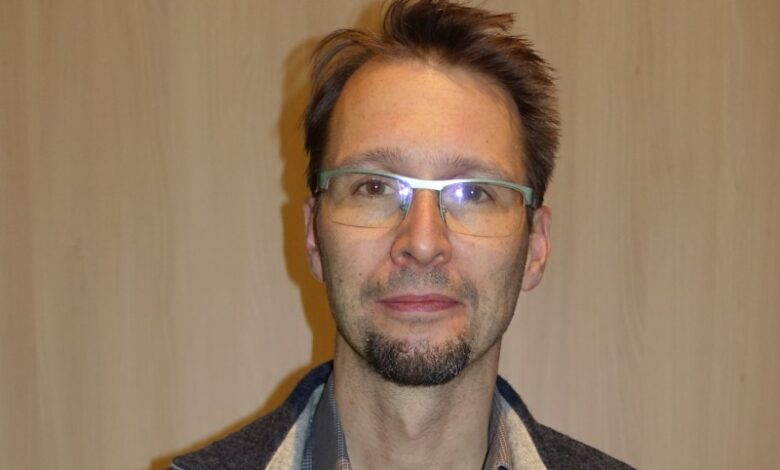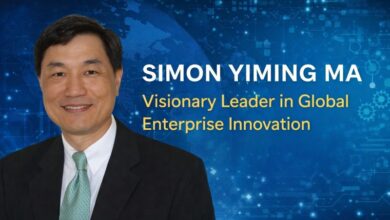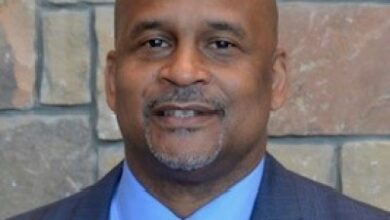Martin Sandbu: The Norwegian Economist Shaping Europe’s Policy Debate

Who Is Martin Sandbu?
Martin E. Sandbu is a distinguished Norwegian economist, writer, and policy thinker who serves as the European Economics Commentator at the Financial Times (FT). Known for his clarity, depth, and independence of thought, Sandbu has become one of Europe’s most influential voices in economic journalism. His work bridges academia, business ethics, and public policy, making him a respected authority on global and European economic issues.
Born in 1975, Martin Sandbu combines analytical rigour with moral reflection, blending economic reasoning with ethical and political insight. His writing consistently explores how economic systems can promote not just efficiency, but also belonging, fairness, and inclusion.
Martin Sandbu’s Academic Background
Martin Sandbu’s educational journey reflects his commitment to both intellectual breadth and critical thinking. He began his studies at Oxford University’s Balliol College, earning a Bachelor of Arts in Philosophy, Politics, and Economics (PPE) from 1995 to 1998. This formative experience grounded him in political theory and economic analysis, both of which continue to shape his work today.
He later pursued a PhD in Political Economy and Government at Harvard University, completing his doctorate in 2003. His doctoral research explored people’s preferences over decision and allocation processes, using both formal models and experimental methods. During his Harvard years, he also studied international trade, economic development, political philosophy, and theories of justice—fields that remain visible in his published work and commentary.
Academic and Research Contributions
Before joining the Financial Times, Martin Sandbu built a strong academic and research career. From 2003 to 2005, he was a Postdoctoral Fellow in International Development at Columbia University, affiliated with both the Earth Institute and the Center on Globalisation and Economic Development.
During this period, Sandbu contributed to policy advisory projects, including advising the President of São Tomé and Príncipe on oil revenue management and economic development. His work focused on institutional design, transparency, and governance—issues that continue to influence his perspective on global economic policy.
In 2000, he briefly served as a Technical Officer at the World Health Organization (WHO), working on the relationship between economic development and mortality reduction for the Commission on Macroeconomics and Health. His analysis contributed to the broader understanding of how macroeconomic policy impacts public health and social wellbeing.
Martin Sandbu at the Wharton School
From 2005 to 2008, Martin Sandbu lectured at the Wharton School of the University of Pennsylvania, one of the world’s leading business schools. There, he taught the main undergraduate course in Business Ethics and Corporate Responsibility, earning recognition for his engaging and rigorous teaching style.
After his lecturing role, Sandbu became a Senior Fellow in Business Ethics at Wharton’s Zicklin Center for Business Ethics Research, serving until 2012. His work at the Zicklin Center focused on the moral dimensions of economic decision-making, an interest that continues to shape his journalistic approach.
Through this experience, Sandbu developed a deep understanding of how markets, corporations, and individuals navigate the moral dilemmas of capitalism. This perspective distinguishes his writing from purely technical economic commentary—his articles often balance moral reasoning with economic pragmatism.
Career at the Financial Times
Martin Sandbu joined the Financial Times in 2009 as the Economics Editorial Writer. For over sixteen years, he has written the FT’s official editorials on economic policy and has contributed extensively to its analytical and opinion sections.
Since January 2019, he has served as the European Economics Commentator, a position that places him at the forefront of discussions on the Eurozone, fiscal policy, inequality, and globalisation. He is also the author of Free Lunch, the FT’s highly regarded newsletter on global economic issues.
Sandbu’s writing style is distinguished by its blend of technical expertise and humanistic reflection. He challenges conventional wisdom, advocates for inclusive economic growth, and explores how economic systems can better serve democratic societies.
Publications and Books by Martin Sandbu
The Economics of Belonging (2020)
One of Sandbu’s most widely acclaimed works, The Economics of Belonging, examines how economic inequality and feelings of exclusion have fuelled populism and political instability. He argues that a new social contract—based on fairness, shared prosperity, and participation—is essential for restoring public trust in democratic capitalism.
Europe’s Orphan: The Future of the Euro and the Politics of Debt (2015)
In this book, Sandbu offers a bold rethinking of the Eurozone crisis. Contrary to many mainstream analyses, he argues that Europe’s debt troubles were the result of flawed policy choices rather than structural flaws in the euro itself. His work urges policymakers to adopt more coherent fiscal integration and to avoid unnecessary austerity.
Other Writings and Thought Leadership
Beyond his books, Sandbu’s columns and essays have influenced debates on economic justice, fiscal policy, and digital transformation. His contributions to the Financial Times and academic outlets demonstrate his ability to engage both technical experts and general readers.
Other Professional Roles and Initiatives
Alongside his writing, Martin Sandbu has been involved in several intellectual and creative ventures. He is the Founding Director and Trustee of Nyctolopic, a London-based experimental dance theatre company that explores movement, art, and expression. This unique involvement in the arts underscores his multidisciplinary curiosity and appreciation for creativity beyond economics.
He is also Co-founder and Founding Chair of Liberalt Laboratorium, a Norwegian think-tank focused on liberal political philosophy and public debate. The organisation works on themes such as Islam and liberal society, social-liberal welfare policy, and environmental governance.
Social Media and Online Presence
Martin Sandbu maintains a measured online presence. His official handle on X (formerly Twitter) is @MESandbu, where he has over 22,000 followers and follows around 1,800 accounts. His bio reads, “I’m not here. Find me on martinsandbu.bsky.social.”
This statement reflects his recent move to Bluesky Social, a decentralised platform where he shares insights and engages with his audience in a more focused environment. His social media presence complements his journalism, giving readers access to timely thoughts and discussions on pressing economic issues.
Martin Sandbu’s Influence and Legacy
Martin Sandbu’s influence lies in his ability to connect economics to ethics, policy, and humanity. Whether writing about inequality, the Eurozone, or climate policy, he consistently argues for a more inclusive, equitable, and sustainable economic order.
His dual background as a scholar and journalist allows him to bridge complex academic ideas with accessible, policy-relevant analysis. He has become a trusted interpreter of Europe’s economic evolution—someone who not only reports on events but also provides vision and moral clarity.
In an era of uncertainty and polarisation, Martin Sandbu’s work invites readers to think critically about what kind of economy and society we wish to build. His voice continues to shape how Europe and the wider world understand economic belonging, fairness, and shared prosperity
FAQs
1. How old is Martin Sandbu?
Martin Sandbu was born in 1975, making him 50 years old as of 2025.
2. Where was Martin Sandbu born?
He was born in Norway and holds Norwegian nationality.
3. What is Martin Sandbu’s educational background?
Martin Sandbu earned a BA in Philosophy, Politics and Economics (PPE) from Oxford University (Balliol College) and a PhD in Political Economy and Government from Harvard University.
4. What is Martin Sandbu’s role at the Financial Times?
He is the European Economics Commentator at the Financial Times, where he writes editorials and the popular Free Lunch newsletter on global economic policy.
5. What is Martin Sandbu’s official Twitter account?
His official Twitter (X) handle is @MESandbu, though he now directs followers to martinsandbu.bsky.social for updates.



